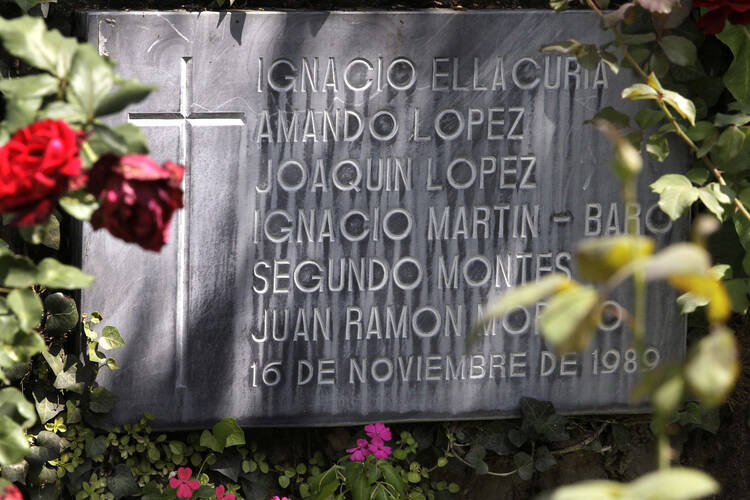Called to Account. Finally
The battles of a civil war do not end when the fighting stops. Twenty-four years after a peace accord halted the bloody civil war in El Salvador, the individuals responsible for some of the war’s most violent episodes remain at large and beyond the reach of justice—but perhaps not for long.
On March 11, a U.S. immigration appeals court ruled that a former defense minister from El Salvador living in the United States could be deported because of his actions during the civil war. More significantly, the court also ruled that he should be held responsible for the actions of the soldiers under his command. Gen. Carlos Eugenio Vides Casanova now faces the prospect of returning home to answer for his role in the violent murder of four U.S. churchwomen in December 1980, among other crimes.
The decision is a significant breakthrough for all those who have been fighting for justice for the slain churchwomen. Robert E. White, the former ambassador to El Salvador who spent over 30 years lobbying for the cause, died on Jan. 13, but not before he was able to give testimony against General Vides. The court’s ruling could also lay the foundation for pursuing other human rights abusers living in the United States and other Western countries. The Center for Justice and Accountability has several cases pending against individuals from Guatemala, Haiti, Chile and other countries. They are also tracking efforts to prosecute those responsible for the killing of six Jesuits in El Salvador in 1989. The judgment against General Vides is a welcome sign that high-level officials will no longer be able to distance themselves from the torture and killings perpetrated by others under their watch.
In Israel, Fear Wins
Here are a few lessons from the recent elections in Israel: fear will always trump hope; the two-state solution is a diplomatic dodo; and suggestions that Arab Israelis should not vote will be rewarded, not punished, by the state’s general voting public.
After calling early elections that were supposed to be a walk-through, Israel’s Prime Minister Benjamin Netanyahu panicked as polls turned against him during the final days of the campaign. With Isaac Herzog’s Zionist Union party enjoying a late surge inspired by Mr. Netanyahu’s unprecedented affront to a sitting U.S. president, the prime minister threw all caution—and hope for a resolution of this 67-year conflict—to the wind. His scorched earth campaign pulled the veil back on his true intentions regarding the “peace process,” burning constituents in Israel and Democratic friends of Israel in Washington alike.
Some have already predicted that the pragmatic Netanyahu will find a way to backpedal from his comments and commitments in order to ensure his “legacy” by the end of his fourth term of office. But stalemate—or worse—is now the prime minister’s legacy, and he seems content to accept it. Israeli settlements will encroach deeper into the West Bank, where residents are already deeply embittered by the Israeli occupation. And a fractured West Bank may increasingly share in Gaza’s fate as a vast open-air prison for a regional minority group.
The prime minister said what he said, and at least the charade has ended. Now the only question is how far the United States is prepared to travel alongside Israel as it accelerates to an inevitable demographic that is its de facto one-state solution.
Wisdom on Immigration
In a recent discussion hosted by the Illinois Business Immigration Coalition, Archbishop Blase Cupich of Chicago criticized Republican opposition to President Obama’s proposed immigration reform, stating that it is not enough to simply deny any efforts toward reform. Archbishop Cupich said that the United States “benefits from the toil, the taxes, the purchasing power of a large number [of] undocumented workers,” yet we are unable to give these workers “their God-given rights.” He also scolded House Republicans for failing to pass a bipartisan bill originally approved by the Senate back in 2013.
The archbishop’s comments arrive at a critical time. A recent study by the American Action Forum, a center-right research institute, has rejected the idea that deporting immigrants would benefit the U.S. economy. According to an analysis by The Atlantic, “removing all 11.2 million undocumented immigrants…would take about 20 years and cost the government between $400 billion and $600 billion.” It would also have a severe impact on the economy, leading to an estimated $1.6 trillion drop in gross domestic product and slowing economic growth by 5.7 percent.
Whatever the economic contributions of immigrant workers, we should not forget the families that would be shattered if the United States does not act on reform. For this reason, if for no other, Democrats and Republicans should continue to work toward a compromise. The lives of immigrants must not be left hanging in the balance.








